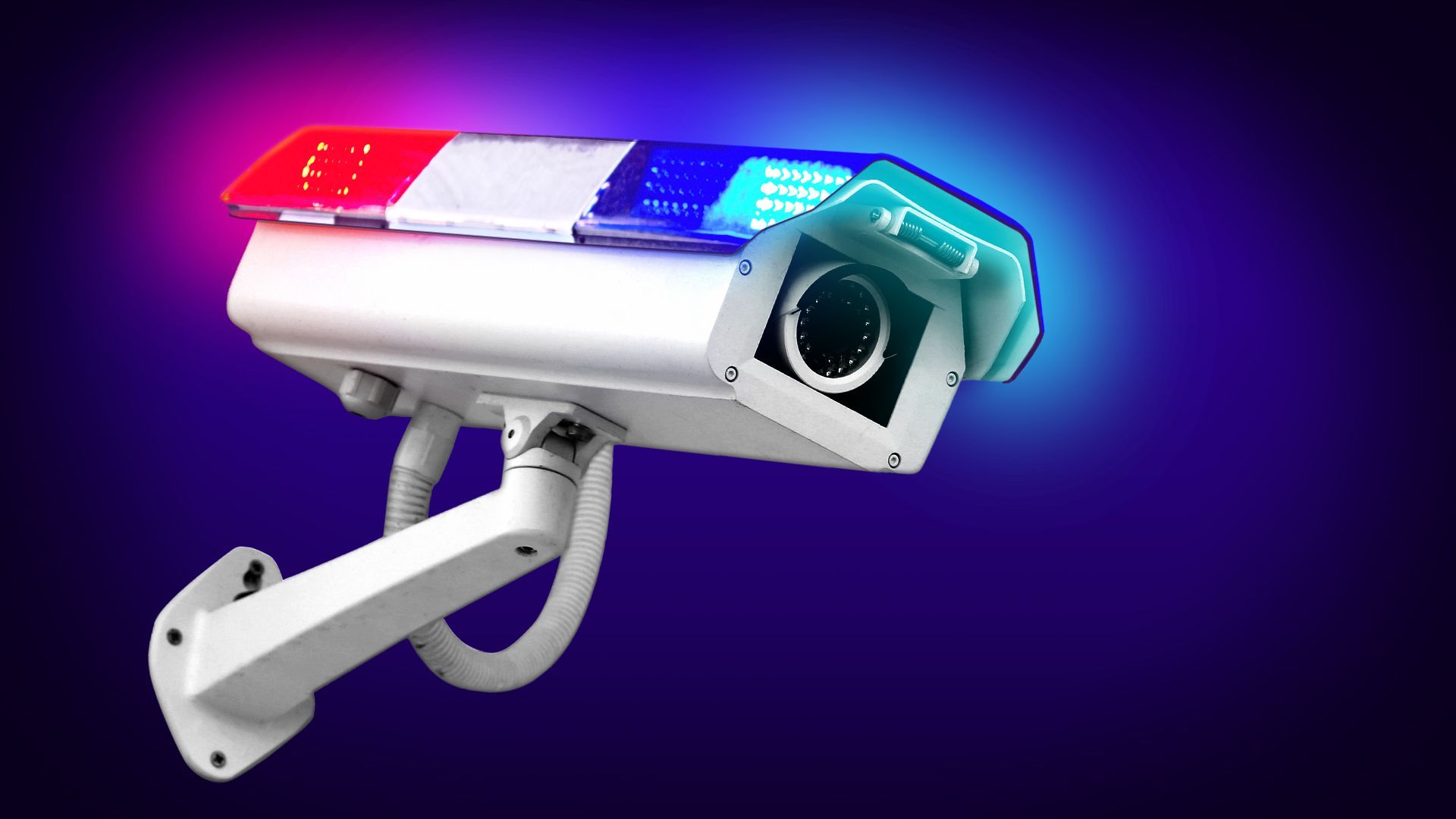Detroit police to use more license plate cameras
Add Axios as your preferred source to
see more of our stories on Google.

Illustration: Annelise Capossela/Axios
Detroit is expanding its use of license plate readers (LPRs) to track down cars involved in crime.
The latest: City Council voted 7-2 Tuesday to approve a $5 million contract with Illinois-based Motorola Solutions. Members Latisha Johnson and Gabriela Santiago-Romero voted against.
Why it matters: Critics of police surveillance such as license plate reading cameras say the technology presents a privacy concern because it collects large stores of innocent drivers' data.
- Ramis Wadood of the ACLU of Michigan urged the lawmakers to postpone or turn down the contract, citing "serious concerns" and lingering questions about data sharing and retention during public comment Tuesday.
- The Detroit Police Department (DPD) says there are ample safeguards and that LPRs are a critical tool used to address violent crime, apprehend fugitives and locate stolen vehicles.
How it works: The camera systems survey intersections and store dates, times and locations for 90 days after taking pictures of license plates within their range. The images can include other information like makes and models, drivers and passengers and features like bumper stickers.
- DPD inputs information about a wanted vehicle and then gets alerts that can be used to engage vehicles, per deputy chief Franklin Hayes.
- DPD has been using the technology for five years and isn't allowed to use it for traffic laws like speeding.
Between the lines: While Santiago-Romero questioned how expensive the tech is after it has led to just 64 arrests out of 25 million plate reads in the last 90 days, Chief James White said 16 of those were murderers, and it's a fair price to pay.
Of note: The number of cameras to be added wasn't disclosed Tuesday. Police didn't respond to Axios' request for additional details.
